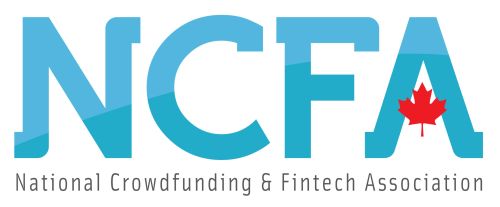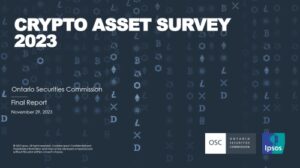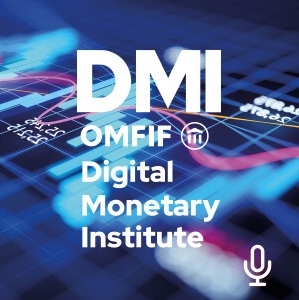OSFI and GRI report: AI in Finance Needs Safeguards, Explainability Key For Trust
OSFI | Release | Apr 17. 2023

Image: Unsplash/Hitesh Choudhary
The Office of the Superintendent of Financial Institutions (OSFI) and the Global Risk Institute (GRI) today jointly released a report on the ethical, legal, and financial implications of artificial intelligence (AI) on financial services institutions.
- OSFI and GRI formed the Financial Industry Forum on Artificial Intelligence (FIFAI) to discuss the application of AI in Canada's financial services industry. The discussions led to the development of guiding principles called the EDGE principles, which focus on Explainability, Data, Governance, and Ethics. These principles aim to promote a responsible and accountable culture around AI usage, enable customers to understand AI conclusions, and encourage consideration of broader societal impacts.
- Explainability: Explaining AI models is essential from the outset, and clear use case and governance frameworks are required to ensure transparency. In high-impact scenarios, inherently explainable models may be preferred.
- Data: The integration of AI into financial institutions' operations has presented new challenges for managing and utilizing data. Financial institutions must align their business and data strategies to ensure that they are collecting, managing, and analyzing the right data to support their goals. Good data governance can ensure data accuracy, consistency, and completeness.
- Governance: Holistic and flexible governance frameworks are essential for effective AI model governance, with a clear risk appetite and multi-disciplinary approach. Governance should also be part of a risk-based culture, not a rote exercise.
- Ethics: Ethics is a nuanced and subjective concept, and there is not a universal definition of fairness. Bias is sometimes desired in certain use cases, such as pricing policies or risk stratification. Data used for AI training can be the source of bias and unfair outcomes. Organizations should maintain transparency and disclose how they ensure high ethical standards for their AI models.
See: Lex Fridman: Interview with Sam Altman, CEO OpenAI on the Future of Artificial Intelligence
- Globally, regulators are striking a balance between regulation and innovation, that is, setting robust regulations while ensuring financial institutions continue to transform and remain competitive.
- The approach to regulating AI globally varies across jurisdictions, with institutions like the Bank of England adopting a principles-based approach while other jurisdictions, like the Monetary Authority of Singapore, provide more granular prescriptive guidance.
- The insights and discussion from FIFAI are a testament to the need for collaboration and a multidisciplinary approach and have shown an appetite for continued dialogue in the Canadian financial services industry.
Peter Routledge, Superintendent of Financial Institutions:
“Recent advances in machine learning represent a great opportunity for financial organizations. However, balancing regulation and innovation is essential. While it is important to ensure financial institutions remain competitive by responsibly leveraging these innovations, the financial stability of our system and its fairness to those who use it are of the upmost importance.”
View the original release --> here
Download the 53 page PDF report 'A Canadian Perspective on Responsible AI' --> here
 The National Crowdfunding & Fintech Association (NCFA Canada) is a financial innovation ecosystem that provides education, market intelligence, industry stewardship, networking and funding opportunities and services to thousands of community members and works closely with industry, government, partners and affiliates to create a vibrant and innovative fintech and funding industry in Canada. Decentralized and distributed, NCFA is engaged with global stakeholders and helps incubate projects and investment in fintech, alternative finance, crowdfunding, peer-to-peer finance, payments, digital assets and tokens, blockchain, cryptocurrency, regtech, and insurtech sectors. Join Canada's Fintech & Funding Community today FREE! Or become a contributing member and get perks. For more information, please visit: www.ncfacanada.org
The National Crowdfunding & Fintech Association (NCFA Canada) is a financial innovation ecosystem that provides education, market intelligence, industry stewardship, networking and funding opportunities and services to thousands of community members and works closely with industry, government, partners and affiliates to create a vibrant and innovative fintech and funding industry in Canada. Decentralized and distributed, NCFA is engaged with global stakeholders and helps incubate projects and investment in fintech, alternative finance, crowdfunding, peer-to-peer finance, payments, digital assets and tokens, blockchain, cryptocurrency, regtech, and insurtech sectors. Join Canada's Fintech & Funding Community today FREE! Or become a contributing member and get perks. For more information, please visit: www.ncfacanada.org
Want to get insider access to some of the most innovative advances happening in #fintech. Register for #FFCON23 and hear from global thought leaders what’s next! Click below for Open Access tickets to all virtual programming and on-demand content from FFCON23.Support NCFA by Following us on Twitter! |
Related Posts
- SEO Powered Content & PR Distribution. Get Amplified Today.
- Platoblockchain. Web3 Metaverse Intelligence. Knowledge Amplified. Access Here.
- Minting the Future w Adryenn Ashley. Access Here.
- Source: https://ncfacanada.org/osfi-and-gri-report-ai-in-finance-needs-safeguards-explainability-key-for-trust/
- :has
- :is
- $UP
- 100
- 2018
- 28
- 39
- a
- access
- accuracy
- across
- Adopting
- advances
- affiliates
- AI
- AI training
- AI/ML
- All
- alternative
- alternative finance
- analyzing
- and
- appetite
- Application
- approach
- April
- ARE
- around
- artificial
- artificial intelligence
- Artificial intelligence (AI)
- AS
- Assets
- At
- authority
- Balance
- BE
- become
- below
- between
- bias
- blockchain
- broader
- business
- by
- cache
- called
- CAN
- Canada
- Canadian
- capital
- case
- cases
- Category
- ceo
- certain
- challenges
- clear
- click
- closely
- CO
- collaboration
- Collecting
- COM
- community
- competition
- competitive
- concept
- consideration
- content
- continue
- continued
- create
- Crowdfunding
- cryptocurrency
- Culture
- Customers
- data
- decentralized
- Demand
- desired
- Development
- dialogue
- digital
- Digital Assets
- Disclose
- discuss
- discussion
- discussions
- distributed
- ecosystem
- Education
- Effective
- enable
- encourage
- engaged
- ensure
- ensuring
- entry
- essential
- Ether (ETH)
- ethical
- ethics
- events
- Exercise
- Explainability
- explaining
- external
- fairness
- finance
- financial
- financial innovation
- Financial institutions
- financial services
- financial stability
- fintech
- flexible
- Focus
- following
- For
- formed
- Forum
- frameworks
- from
- funding
- funding opportunities
- future
- get
- Global
- Globally
- Goals
- good
- governance
- Government
- great
- guidance
- Happening
- Have
- hear
- helps
- High
- holistic
- How
- However
- http
- HTTPS
- human
- Impacts
- implications
- importance
- important
- in
- industry
- information
- Innovation
- innovations
- innovative
- Insider
- insights
- institutions
- Insurtech
- integration
- Intelligence
- Interview
- investment
- issues
- IT
- ITS
- Jan
- join
- jpg
- jurisdictions
- Key
- large
- leaders
- learning
- Led
- Legal
- leveraging
- like
- live
- Live Events
- machine
- machine learning
- maintain
- managing
- March
- Market
- MAS
- max-width
- May..
- member
- Members
- model
- models
- more
- most
- multi-disciplinary
- multidisciplinary
- Need
- needs
- networking
- New
- Newsletter
- of
- on
- On-Demand
- open
- OpenAI
- Operations
- opportunities
- Opportunity
- organizations
- original
- Other
- our
- page
- part
- partners
- payments
- peer to peer
- perks
- perspective
- plato
- Plato Data Intelligence
- PlatoData
- please
- policies
- preferred
- presented
- pricing
- principles
- productivity
- Programming
- projects
- promote
- provide
- provides
- register
- Regtech
- Regulation
- regulations
- Regulators
- release
- released
- remain
- report
- represent
- required
- responsible
- Risk
- risk appetite
- robust
- s
- Sam
- scenarios
- Sectors
- Services
- setting
- should
- shown
- sign
- societal
- some
- Source
- Stability
- stakeholders
- standards
- Stewardship
- strategies
- such
- support
- system
- TAG
- testament
- that
- The
- The Future
- The Source
- their
- These
- thought
- thought leaders
- thousands
- tickets
- Title
- to
- today
- Tokens
- Training
- Transform
- Transparency
- true
- Trust
- understand
- Universal
- Unsplash
- us
- Usage
- use
- use case
- used
- Utilizing
- vibrant
- Virtual
- Visit
- which
- while
- WHO
- with
- works
- zephyrnet














